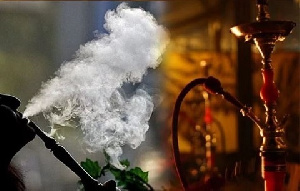30% of students bleaching – Eastern Regional Education Director

The Eastern Regional Director of Education, Ivy Asantewa Owusu, has expressed concern over the rising trend of skin bleaching among students in second-cycle institutions in the region.
According to her, as many as 30% of students in some institutions are bleaching their skin.
She described the situation as unacceptable and cautioned against the practice.
“Now we have the challenge of students bleaching in schools. You can go to some institutions, and you can see clearly not less than 30% of students are bleaching. Both boys and girls are bleaching. Disheartening? Yes. And when you look at their palm, you look at the hand, it speaks volumes. What virtue are you cultivating for yourself”, She said when speaking at the launch of the 25th anniversary celebration of Pentecost Senior High School in Koforidua.
The Ghana Education Service (GES) has forbidden skin bleaching among students across all Second Cycle institutions nationwide.
The directive is one of the provisions within the harmonized Code of Conduct approved this year by the Ghana Education Service Council for students in the pre-tertiary levels.
The section of the code of conduct obtained by Starr News titled “Improper Dressing” explicitly states that “Bleaching of the skin by a student shall not be allowed”.
Despite this prohibition, enforcement has not been effective as no student found culpable has been punished.
Skin bleaching refers to the use of products to lighten dark areas of the skin or achieve an overall lighter complexion.
These products include bleaching creams, soaps, and pills, as well as professional treatments like chemical peels and laser therapy.
Dermatologists say skin bleaching causes conditions such as skin cancer, high blood pressure, fatigue, light sensitivity Numbness, neurological symptoms, including tremors, memory loss, and irritability, kidney failure, lung and kidney damage.
In 2017, Ghana’s Food and Drugs Authority banned importation of bleaching products.
However, the ban has not been effective due to a lack of strict enforcement.
Refreshingly, the Food and Drugs Authority announced in August this year to commence the implementation of the ban on the import and sale of skin-bleaching products.
The Acting Chief Executive of the Food and Drugs Authority (FDA), Mimi Darko, informed a parliamentary committee that the FDA is intensifying efforts to remove products containing the bleaching chemical hydroquinone from the market.
Speaking to the committee, she confirmed that the FDA has halted the registration of products containing hydroquinone and has initiated a sensitization programme to combat the sale of such products.
“The bleaching agent in most creams is hydroquinone, and the Ghana standard now requires zero percent hydroquinone in bleaching creams,” Darko was quoted by local media.
She further stated, “The FDA is working with cosmetic sellers to ensure that such creams are not available on the market. Our lab is also testing these products to detect any hidden traces of hydroquinone during laboratory analysis.”
Source: starrfm.com.gh




